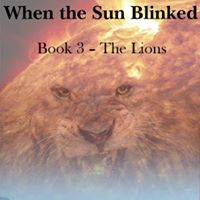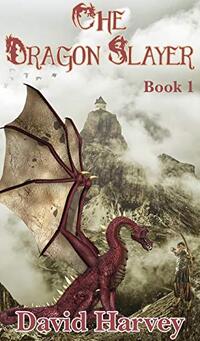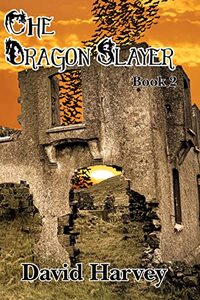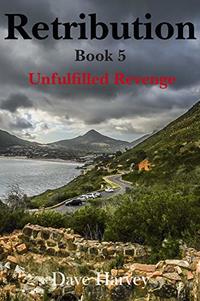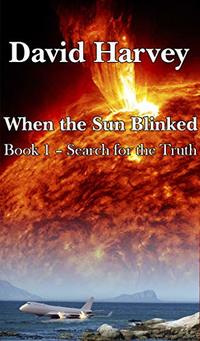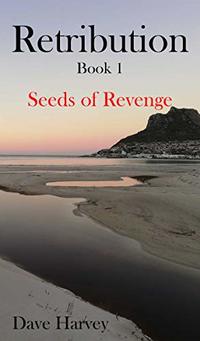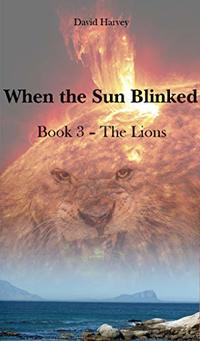Dave Harvey Interview Published on: 12, Jun 2019
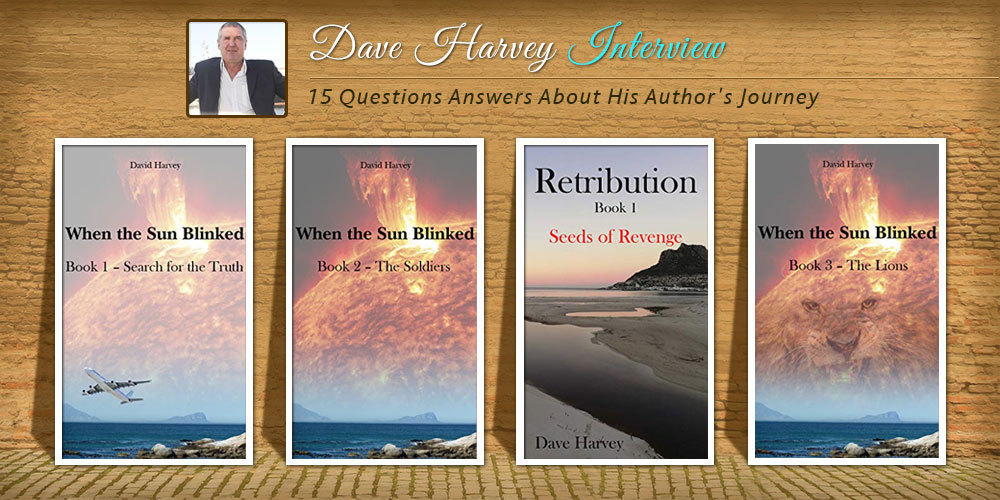 Born in Johannesburg, South Africa in 1951. Favorite childhood memory?
Born in Johannesburg, South Africa in 1951. Favorite childhood memory?
The amount of bike riding my brothers and I did with friends. With grew up in very rural areas, either small holdings or farms. The mode of transport was bicycles and we would ride all day, everywhere. Nowhere was safe from our reach.
What did I study at University?Bachelor of Commerce with Majors in Mercantile Law and Business Economics.
How would I describe the following 5 years in the Rhodesian border conflict?I have so many descriptions of different aspects of those 5 years. Because my life had been spent mostly on farms far from any real social world, my knowledge of the border conflict before starting my National Service was vague at best and the extent of the conflict was not publicized in any way by the Government.
Consequently, my first impression was the anxiety which pervaded on the very first day when I had to present myself at the barracks along with the sixty or seventy other newbies all forming my particular intake. Arbitrarily separated into three squads, we were marched off (at that stage an incredibly loose description) to be kitted out with all we would need for the next six months. Then, step two was haircut inspections and reduction to a common length approximating baldness and from that moment the world as we had all previously known it fell apart.
Now it was a world of being screamed at, punished at random, drilled to exhaustion and then some more. The very first parade ground inspection was at six o’clock of day 2. For this, boots had to be shined to mirror quality with all imperfections removed. Brass buckles needed to be gleaming and beds and lockers ruler perfect. Then the horrors of the parade ground began. Every parade started with a rigorous inspection by our instructor who could easily pick out an imperfection from 2 recruits away. Which in many instances meant that just when he was past and you thought you were safe, he’d been fooling you. His eyes defied belief.
Inspection was followed by learning to march, learning to turn, learning, learning and more learning. It all had to be perfect – in fact beyond perfect. But, I will never forget one day we were being marched down to the exercise field and for some reason we were brought to a halt outside the armory. We were right next to a truck filled with soldiers either going out into the bush or returning, and our drill instructor started screaming and cursing at some unfortunate individual who may have been marginally out of step.
After about five minutes of verbal abuse, as our instructor took a deep breath to start again, a voice from somewhere on the truck called out in a broad Scottish accent. ‘If that had been me, I would’ve taken the rifle you’re carrying and shoved it up your ass.’ Needless to say the chaos which subsequently erupted was worth all the extra punishment we received for laughing.
There were good times, dreaded times, days of fear and days of exhaustion; days of relatively non-stop action and days of boredom. A regular potpourri of any war I suppose. Rhodesia’s standing army was too small to cope with the escalating war, so around sixty percent, maybe more, of soldiers were conscripts, called up to do duty for their country. This made for a mix of reactions, from those who embraced it to those who only wanted to do their time and get out safely if they could. What started out as 12-month conscription, rapidly became 15 months, then 21 and then 24. Then we started an indefinite period of 6 weeks in with six weeks out and before I knew it, 5 years was looming.
Of course, what no amount of training could ever prepare you for was the initial fear of being totally unprepared for engagements with the other side and it took time for experience to kick in. Spanning close to five years we all saw friends and colleagues killed or injured. It was a raw conflict on both sides, which continued to escalate until eventually a cease-fire of sorts took hold and talks began.
The biggest problem I believe was that even though as a fighting force, the Rhodesians were undoubtedly amongst the best in the world, after 1978, most people realized it was inevitably going to come down to a political and not a military solution. Those who could were leaving the country and each intake of conscripts became smaller in number as the volume of armed insurgents grew larger and larger.
But on balance, I would have to say I’m glad I did my time. It taught me about respect, discipline, and life.
When did I start writing? Favorite genre?I started in June 2014 and my only genre is Fiction. Try as I might, I don’t think I have the ability to do any other genre, unfortunately.
How do people I meet during travel inspire me?So far, most of my characters are either heavily based or (very) loosely based on people I have met in life, rather than traveling. Many of the characters from the ‘When the Sun Blinked’ series were from my Military Service. One of the main characters in the Retribution series, Tulley McGuire (not her real name) was a real character who popped into our local supermarket one day when I was sitting around the coffee bar with a number of other regular caffeine junkies first thing in the morning. She was breathtakingly beautiful, and when I say she stopped all conversation, I mean it. It was a no-brainer for me that she became a character I needed in the book.
How would I describe my writing? Do I think it has changed much since the last book?It’s continually in a learning curve. To begin with, I believe my passion and ideas way outdistanced my abilities by far. I hope though, as I have continued, I have matured and each book has become, is becoming, slightly better than the one before.
Who inspired the character of Cesar Quevedo? How did I come up with character names?The Cesar Quevedo character is/was, completely based on imagination and Google. I did extensive reading and research into Abalone poaching and some of the characters who have been caught and jailed. From there I looked at what my character would look like, coming from Colombia and moving from the drug cartel he used to be part of as an enforcer, to the new venture. Then I made him as amoral as I could, but gradually, he is morphing into a different person now that he has inadvertently discovered love. The problem is, there is nothing whatsoever romantic in any form of poaching, but for now, it is shaping him into someone who may ultimately see the light in the future. I don’t know yet. As far as character names, I have to confess that Google is my friend.
If I had an extra hour every day, what would I do with it?Sleep – I’m pretty much an insomniac.
Why did I write When the Sun Blinked in two parts? What is my favorite part?The book is actually in three parts. It was, for me, too long to have as a single book as the journey they take just to understand why they see no signs of rescue or any sign of people needed to evolve. My favorite part is probably when they finally work out where they are and the realization that they will never be rescued. The sheer despair of what they go through was the mirror image of what I, in reality as I am one of the characters, (Jeffrey) went through in a part of my personal life.
Why did I decide to make Hout Bay and Camps Bay my setting in the Retribution series?I live in Hout Bay and the streets and places I refer to throughout are the same places I see every day. I wanted the settings to be as realistic as possible so the story could be as real as possible. I also visit Camps Bay on a regular basis and am therefore as familiar with it as it is possible to be.
When the Sun Blinked Part 2 – The Soldiers. How much research did I do?Part 2 is where they discover where they are, based on what they see behind the mountain range when Andy takes a small group through the mountains to find rescue. I saw what they see as I hiked and photographed the area to death. When I was writing about the terrain, it was drawing on memory and images. The only difference is now there is a large town whereas in their time there was nothing and there are no animals, whereas again in their time, there were so many as only natural predation kept their numbers in check.
The introduction of the 7 soldiers, caught up in the same circumstances was never planned. It just happened.
Key challenges I faced when writing Winter Revenge?Winter Revenge is the second book in the Retribution series. For me, the key challenge was to sustain momentum and continue building a credible story where a family of good people have inadvertently run afoul of a drug cartel but do enough back to keep the cartel at arm’s length, but not to push too far. Hence the ambush where the police are disguised as Asians is to steer the cartel thinking in the direction of the fake Chinese Triad created by Dallas. The Hout Bay family cannot be seen to be weak or the cartel will swallow them. The primary challenge is to try and keep some kind of balance.
How do you think concepts such as Kindle and e-books have changed reading.For myself, it has made books more enjoyable, more accessible and given me the power to decide what I want to read more easily. In many instances, I am guided by samples when I am debating the merits of purchase of a book or not. At these times, the ability to get an insight into the style and type of book is worth its weight in gold. Especially since book stores do not let you return the book after you decide it isn’t for you.
How many plot ideas are waiting to be written? Can I tell you about one?There are several plot ideas waiting to be born and they will emerge from the next two or three books. A heads up on one is that in Book 3, Dimitri Alfieri pays a local Hout Bay gangster to attack Ajax Lightfoot. The plan goes horribly wrong and the gangster ends up in hospital. He will not be walking for some time to come. He manages to get Dimitri Alfieri to visit him and tells him that the Hout Bay family bring more drugs in through the harbor every month than Dimitri himself does. That is a total lie but is going to have massive repercussions in Book 4. Well, that is the plan anyway.
When did I first come across the AllAuthor website and what were my expectations coming in?I only came across them towards the end of 2018 and did not pay them sufficient attention. How I came across them, I can honestly not remember. However, of all the sites that help and promote authors, AllAuthor is for me, simply the best. The amount of work the site does to help promote featured books is way ahead of anyone else. I use several sites to try and promote my books but AllAuthor is the ONLY one that sends me information on a weekly basis, sends me new banners I can publish, posts my featured books on Twitter, etc etc.
I love you guys.
Share Dave Harvey's interview
Author Dave Harvey was born in Johannesburg, South Africa in 1951. He has studied Bachelor of Commerce with Majors in Mercantile Law and Business Economics. He started writing in June 2014 and his only genre is Fiction. He lives in Hout Bay. There are several plot ideas waiting to be born and they will emerge from the next two or three books. A heads up on one is that in Book 3, Dimitri Alfieri pays a local Hout Bay gangster to attack Ajax Lightfoot.
